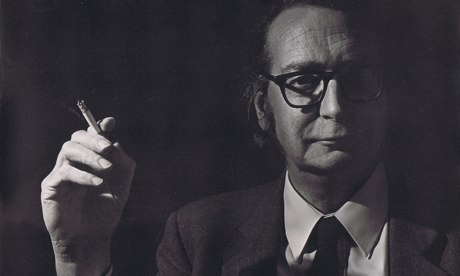
John Westergaard, who has died aged 86, was the leading figure of a distinctively British school of Marxism that specialised in the meticulous examination of class structure. He championed the study of class inequality as a defining feature of capitalism, long before its importance became more widely acknowledged, and played key roles in the development of the sociology profession.
Class in a Capitalist Society (1975), written with Henrietta Resler, was the first comprehensive anatomy of class inequality in Britain, focusing on power, social mobility, the welfare state and the influence of the media. Contrary to the consensus at the time, it demonstrated that class had not withered away.
Two decades later Who Gets What? showed that class inequalities had persisted and hardened. It pinpointed the top 1% of wealth holders as the capitalist core. Whereas many sociologists neglected economic organisation, these two landmark books argued that private property is the key determinant of continuing class privilege and illustrated the ways in which the capitalist economy influences the construction of institutions such as the welfare state. John's emphasis on inequalities in the distribution of income, wealth and power ran counter to orthodox Marxism's focus on processes of production: who gets what is as important as who does what. When Marxism fell out of fashion he remained true to his convictions and was gratified to see the renewed attention given to inequality by, among others, Thomas Piketty.
Born in Putney, south-west London, John was one of three children of Danish parents, Otto, a civil engineer, and his wife, Inger. In 1938, just before his parents got divorced, John and his younger sister moved with their mother to Copenhagen, where he was sent to an elite boarding school. John's older brother enlisted in the RAF and died in a Lancaster bomber.
His mother was active in the Danish resistance and their flat was used as a safe house. John's best friend was executed by the Nazis. The German occupation fuelled his resentment of authority and abhorrence of nationalism. His commitment to socialism was the flip-side of anti-nationalism: the war had to be for something positive.
After working for a short period for the British Army of the Rhine, as a censor of mail, he studied sociology at the London School of Economics (1948‑51). His first research post was in town planning at University College London with the urban sociologist Ruth Glass.
After a year at Nottingham University he returned to LSE in 1956, and lecturing posts led to his appointment as reader in sociology (1970-75). He then moved to Sheffield University as professor (1975-86), and with his colleague Eric Sainsbury took early retirement to protect his younger colleagues from staff cuts.
He held visiting positions in eight overseas universities, served the British Sociological Association (BSA) as president (1991-93), and was prominent in the International Sociological Association.
In retirement, John continued to be active in the BSA, and wrote extensively – in his unique typescript-like longhand – including his autobiography and assorted fiction. He relished a constructive argument: his intellect was extraordinary and his knowledge encyclopedic, yet he was utterly self-effacing and uninterested in self-promotion.
He is survived by his second wife, Hanne, a ceramicist, and their daughter, Camilla; by two children from his first marriage, Sue and Mike, his first son, Niels, having died in infancy; by his stepson Troels; and by six grandchildren and one great-grandchild.
• John Harald Westergaard, sociologist, born 13 October 1927; died 3 May 2014

